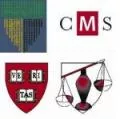
Harvard-MIT-Yale Cyberscholar Working Group
Thursday, February 19, 5:30 - 8PM
Berkman Center for Internet & Society, 23 Everett St 2nd Fl, Map
Dinner is provided but please RSVP to [email protected]
The "Harvard-MIT-Yale Cyberscholar Working Group" is a forum for fellows and affiliates of the Comparative Media Studies Program at MIT, Yale Law School Information Society Project, and the Berkman Center for Internet & Society at Harvard Law School to discuss their ongoing research. Each session is focused on the peer review and discussion of current projects submitted by a presenter. Meeting alternatively at Harvard, MIT, Yale, the working group aims to expand the shared knowledge of young scholars by bringing together these preeminent centers of thought on issues confronting the information age. Discussion sessions are designed to facilitate advancements in the individual research of presenters and in turn encourage exposure among the participants to the multi-disciplinary features of the issues addressed by their own work.
Dinner is provided but please RSVP to [email protected]
--
Cybernetics and Revolution - Eden Medina
In 1970 Chile embarked on a peaceful road to socialism under the guiding hand of President Salvador Allende (1970–73). Chile's political experiment set the stage for an ambitious technological experiment, one that has not been attempted since. From 1971 to 1973 Chilean and British engineers, working under the direction of the pioneering British cybernetician Stafford Beer, built a computer network to help make Chile's socialist revolution a reality. The team called the system Cybersyn. It is arguably the most ambitious application of cybernetic ideas to date. In this talk Professor Medina will present material from Cybernetic Socialism, her book-in-progress that tells the history of Project Cybersyn. She will link this historical case study to present day issues in e-governance, participatory design, and computer surveillance.
Platform Studies and the Atari VCS (Atari 2600) - Nick Montfort
Researchers have long studied specific cultural artifacts, such as particular books and paintings, to try to better understand creativity, expression, and our world. In recent years, this consideration has extended to digital media, where scholars have focused on particular programs at the interfaces and rule level as well as different styles of interaction and play. In Racing the Beam: The Atari Video Computer System (MIT Press, 2009), Ian Bogost and I provide the first humanistic study, not of a video game, but of a computer platform -- the first consideration of how a particular computing system relates to creativity and the creative work done upon it. We offer a detailed and accessible study of the most important early videogame console. Bogost and I developed the original approach of platform studies by drawing on textual studies, computer programming and engineering, and videogame studies. We consider the Atari VCS hardware as evidence of human work, decisions, and processes, tracing a material history while exploring the formal workings of the VCS and its games to reveal the technological and cultural contexts of the time. This study of the VCS is technically informed, explaining the implications of components, including the unusual Television Interface Adapter. The development of and aesthetic qualities of many influential VCS games (Combat, Adventure, Pitfall, Yars' Revenge, Pac-Man, and others) are discussed in detail in relation to the VCS platform.
Video Games and Pro-Social Development - Gene Koo
Learning scientists have advanced video games as paradigmatic learning experiences; meanwhile media activists have condemned games as stimulating aggression or worse. We believe games can succeed as learning environments for moral and ethical issues -- not just for ill, but also for the better. First, though, they must succeed as both good games and good pro-social experiences. We look in particular at choice, consequence, and reflection as key aspects of an effective pro-social game, using not just the learning sciences but also the perspective of moral psychology and character education.
---
Eden Medina is an assistant professor of informatics and an adjunct assistant professor of history at Indiana University, Bloomington. She received her Ph.D. in the history and social study of science and technology from MIT. Medina's work uses technology as a lens for understanding historical processes in the Latin American region. She is the recipient of the 2007 IEEE Life Member's Prize in Electrical History awarded by the Society for the History of Technology.
Nick Montfort is assistant professor of digital media in the Program in Writing and Humanistic Studies at the Massachusetts Institute of Technology. He earned a Ph.D. in computer and information science from the University of Pennsylvania and masters degrees from MIT (in media arts and sciences) and Boston University (in creative writing — poetry).
Gene Koo is a Berkman fellow and focuses on emerging methods of education in a digitally networked world. In collaboration with the Center for Computer-Assisted Legal Instruction, he is developing a commons where law professors can collaboratively create teaching materials. He also studies the intersection of video games and moral development.
